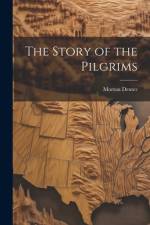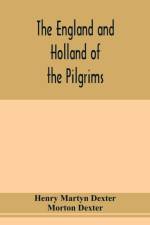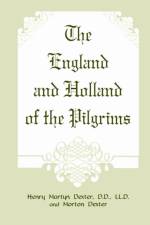av Morton Dexter
487
In the fourteenth century, the Roman Catholic Church reigned supreme in England. The first break from the Church occurred in the early 1500s when King Henry VII wanted to divorce his wife, Catherine. The King's break with the Roman Catholic Church created the Anglican Church (Church of England) which, though not entirely Protestant, nonetheless allowed a revival of Protestantism. Many of these Protestants were called Puritans "because of their wish to purify and reform the State Church." Religious persecution continued through the 1600s, however, for any group that varied too far from the teachings of the Church of England. The Pilgrims evolved from the Puritans.The author endeavors "to make plain something of the exalted character of the men and women whom preeminently the world has agreed to call the Pilgrims...." who "maintained steadily their lofty intellectual, moral, and religious standards and soon exerted an enlightening influence upon the world out of all proportion to the smallness of their colony." This informative and readable history includes biographical sketches of Robert Browne, William Brewster, William Bradford, and John Robinson, as well as many notes on lesser known but nonetheless important early Pilgrims. The Pilgrim towns of Scrooby and Austerfield in England are described in detail, as is the now-famous Plymouth Colony of 1620 in Massachusetts. The author describes the colony in detail, devoting chapters to its early life, commercial history, and first year of existence.This book was originally printed as a series of weekly articles in 1893 for members of the Scrooby Clubs, a nationwide collection of individuals associated with the Congregational Church.(1894, 1990), 2022, 5¿x8¿, paper, index, 386 pp.





